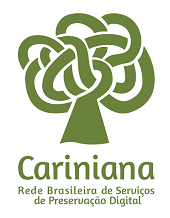Historical Learning: dialogues for an approach with history theory
DOI:
https://doi.org/10.5433/2238-3018.2020v26n2p51Keywords:
Historical learning, Historical thinking, Historical literacyAbstract
This article deals with historical learning, aiming to contribute to the discussions aimed at its approach / insertion in the field of the theory of history. The text is divided into two parts. In the first, we present a characterization of historical learning under the following aspects: a) conceptual; b) for the competences that it has to develop: experience, interpretation and guidance; c) considering the typologies proposed by Rüsen: traditional, exemplary, critical and genetic (RÃœSEN, 2010; 2012) which, according to the author, signify a fertile way to analyze and interpret concrete processes of this type of learning. Then, we talk about historical literacy (LEE, 2006), approaching the discussions concerned with thinking about historical learning that effectively develops historical thinking. We conclude our reflections by dealing with the concrete processes of teaching and learning History and its effects for and in practical life, based on the "historical cognition situated" in History itself (SCHMIDT, 2009a), which aims to insert historical education within the scope of your reference science.
Downloads
References
BARCA, Isabel. Literacia e consciência histórica. Educar, Curitiba, v. 22, p. 93-112, 2006. Disponível em: http://ojs.c3sl.ufpr.br/ojs2/index.php/educar/article/view/5545/4059. Acesso em: 7 set. 2012.
CAIMI, Flavia. E. O que precisa saber um professor de história? História & Ensino, Londrina, v. 21, n. 2, p. 105-124, jul./dez. 2015.
EDWARDS, Verónica. Os sujeitos do universo da escola. São Paulo: Ática, 2003.
KOSELLECK, Reinhart. Espaço de experiência e horizonte de expectativa. In: KOSELLECK, Reinhart. Futuro passado: contribuição à semântica dos tempos históricos. Tradução de Wilma Patrícia Maas, Carlos Almeida Pereira. Rio de Janeiro: Contraponto, 2006. p. 305-327.
LEE, Peter. Em direção a um conceito de literacia histórica. Educar, Curitiba, n. esp., p. 131-150, 2006. Disponível em: http://ojs.c3sl.ufpr.br/ojs2/index.php/educar/article/view/5543/4057. Acesso em: 25 maio 2012.
LIMA, Marta. Aprendizagem. In: FERREIRA, Marieta de Morais; OLIVEIRA, Margarida Maria Dias de (coord.). Dicionário de ensino de história. Rio de Janeiro: FGV Editora, 2019. p. 24-29.
LUIZ, José. Literacia. In: DICIONÁRIO Informal. [S. l.: s. n.], 2009. Disponível em: http://www.dicionarioinformal.com.br/literacia/. Acesso em: 30 dez. 2012.
RÃœSEN, Jörn. Jörn Rüsen e o ensino de história. Curitiba: Editora da UFPR, 2010.
RÃœSEN, Jörn. Aprendizagem histórica: fundamentos e paradigmas. Tradução de Peter H. Rautmann, Caio da C. Pereira, Daniel Martineschen, Sibele Paulino. Curitiba: W. A. Editores, 2012.
SCHMIDT, Maria Auxiliadora M. dos S.; BARCA, Isabel (org.). Aprender história: perspectivas da educação histórica. Ijuí: Editora Unijuí, 2009.
SCHMIDT, Maria Auxiliadora M. dos S. Cognição histórica situada: que aprendizagem histórica é esta? In: SCHMIDT, Maria Auxiliadora M. dos S.; BARCA, Isabel. (org.). Aprender história: perspectivas da educação histórica. Ijuí: Editora Unijuí, 2009a. p. 21-51.
SCHMIDT, Maria Auxiliadora M. dos S. Literacia histórica: um desafio para a educação histórica no século XXI. História & Ensino, Londrina, v. 15, p. 9-22, ago. 2009b, Disponível em: http://www.uel.br/revistas/uel/index.php/histensino/article/view/11424. Acesso em: 17 jul. 2012.
SCHMIDT, Maria Auxiliadora M. dos S. O significado do passado na aprendizagem e na formação da consciência histórica de jovens alunos. In: CAINELLI, Marlene; SCHMIDT, Maria Auxiliadora M. Educação histórica: teoria e pesquisa. Ijuí: Editora Unijuí, 2011. p. 81-90.
SIMAN, Lana Mara de Castro. O papel dos mediadores culturais e da ação mediadora do professor no processo de construção do conhecimento histórico pelos alunos. In: ZARTH, Paulo A. et al. (org.). Ensino de história e educação. Ijuí: Editora UNIJUÍ, 2004. p. 82-107.
Downloads
Published
How to Cite
Issue
Section
License
Copyright (c) 2020 História & Ensino

This work is licensed under a Creative Commons Attribution 4.0 International License.
História & Ensino adota a licença CC-BY esta licença permite que os reutilizadores distribuam, remixem, adaptem e criem a partir do material em qualquer meio ou formato, desde que a atribuição seja dada ao criador. A licença permite o uso comercial.






















